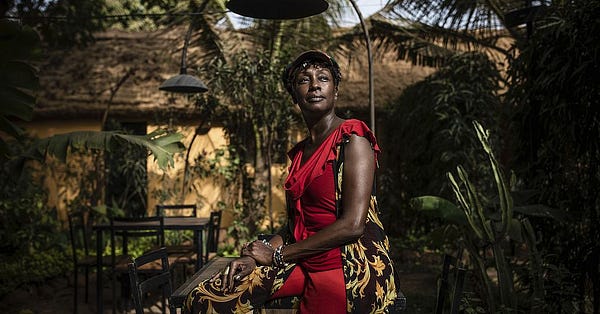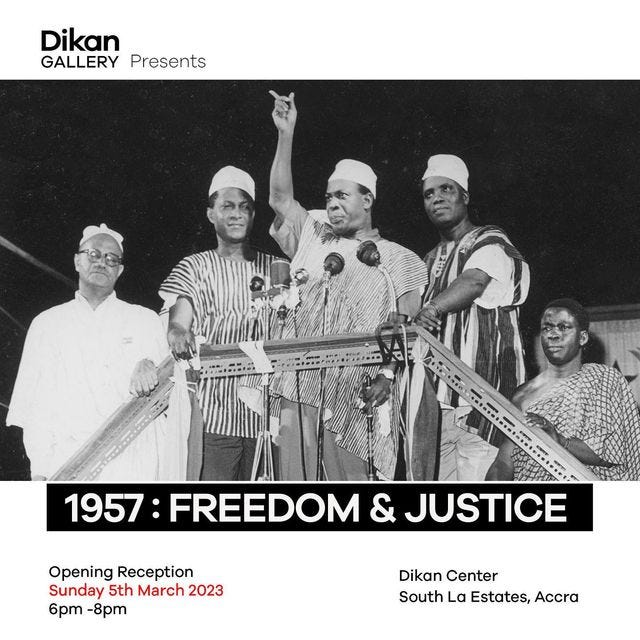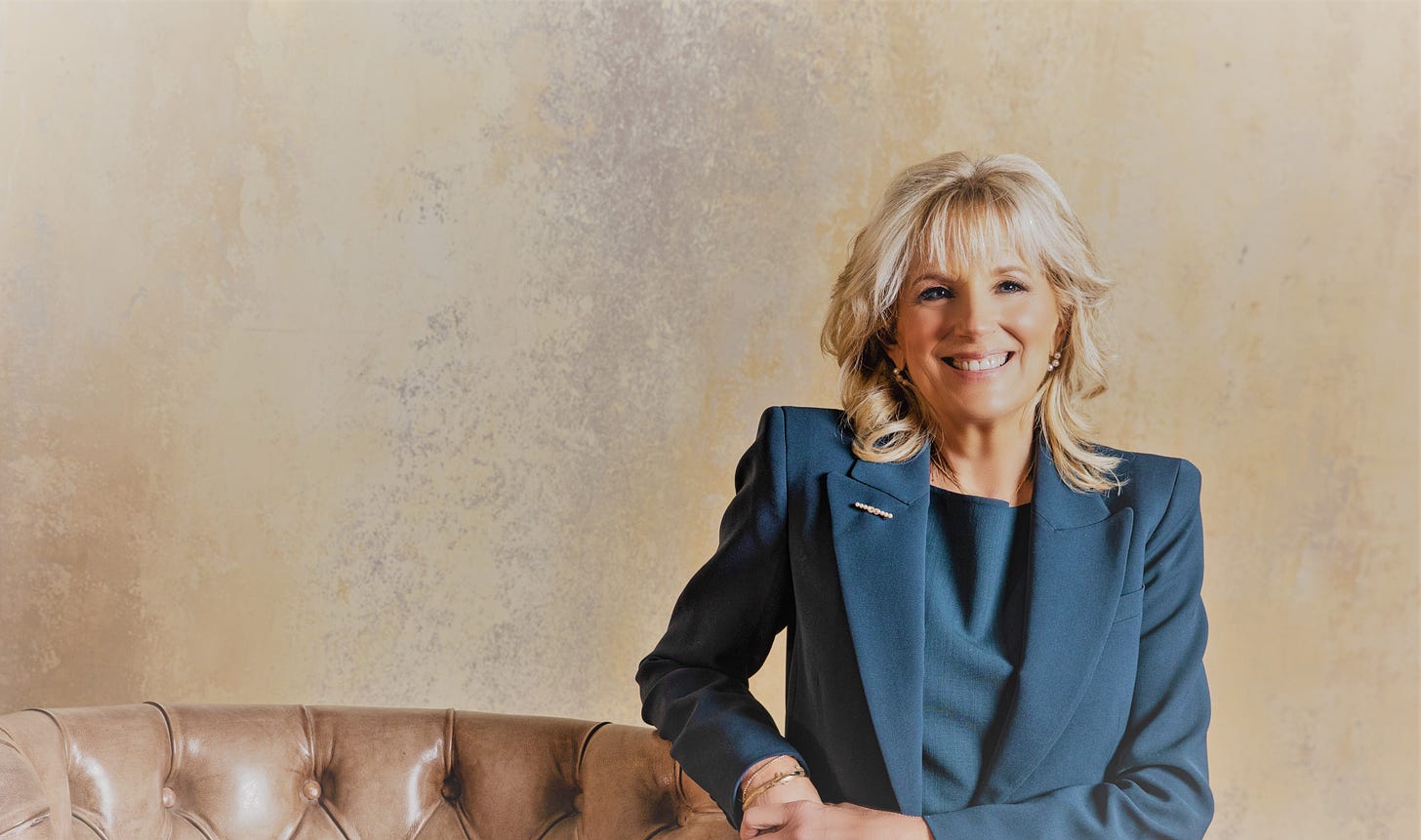🔅 Africa’s biggest film festival is underway
Plus: Is Accra Africa's Creative Capital?, Nigeria election results, Passport-free travel for Botswana-Namibia, Netflix trying to win back customers, Jill Biden in Kenya, And much more... ☕
Photo of the day: Gabon

Markets
🔺 Nigerian SE: 54,949.21 (+7.22%)
🔺 Johannesburg SE: 76,937.77 (+5.32%)
🔺 Ghana SE: 2,425.37 (-0.76%)
🔻 Nairobi SE: 126.47 (-0.78%)
🔺 US S&P 500: 3,970.04 (+3.82%)
🔻 Shanghai Composite: 3,267.16 (+4.83%)
Netflix's Price Cut: The streaming giant is trying to win the love of its customers. To keep up with the competition from Amazon, HBO, and Disney, the company just slashed prices in over 30 countries, including Malaysia, Indonesia, Thailand, the Philippines, Croatia, Venezuela, Kenya, and Iran. Some of these cuts are serious, with prices dropping by half in some cases. At the same time, Netflix is also clamping down on password sharing. People who want to share their subscription with friends and family who don't live with them now have to pay an extra fee. The streaming giant's stock prices closed 3.4% lower in New York after the news of the price cuts came out.
*Data accurate as of the close of markets across the continent
CULTURE
Africa’s biggest film festival is underway

This Saturday, the West African nation of Burkina Faso will be hosting the weeklong FESPACO film festival.
It’s an event that remains a beacon of hope and endurance despite the violence-torn country’s political strife and Islamic extremist attacks that have killed thousands and displaced nearly two million.
Wait, what's FESPACO?
FESPACO, or the Pan-African Film and Television Festival of Ouagadougou, is Africa’s biggest film festival. It was launched in 1969, and is held every two years in Ouagadougou, the capital of Burkina Faso.
The event will draw over 15,000 people, including cinema celebrities from Nigeria, Senegal and Ivory Coast. There have been 1300 film submissions across 35 African countries, including the diaspora, and 100 of them have been shortlisted for the competition.
It's not just about entertainment:
That’s right. Through the festival, many are hoping to foster a sense of unity at a time when anti-French sentiment is on the rise. The European Union is a big contributor to the event, and its ambassador in Burkina Faso has called the film festival “an important contribution to peace and reconciliation in Burkina Faso and beyond.”
What makes this year's edition unique?
The competition is particularly unique this year, as it sees almost half of the films directed by women. One of the frontrunners for the festival is Maimouna Ndiaye’s “Sira,” which is emblematic of many Burkinabes’ suffering. It tells the tale of a woman’s struggle for survival after being kidnapped by jihadis in the Sahel, as her fiancé tries to find her.
Why Burkina Faso?
Burkina Faso has historically been a key player in the African film industry, having produced some of the continent’s most acclaimed movies. The country has also been a major hub for film festivals, with FESPACO being the most prominent.
If you’re a regular here, hit that share button. Tell your friends and colleagues about how Baobab will get them smarter on African business, money and current affairs in less than 5 minutes a day, for free!
OTHER HEADLINES
Across the Continent

🇳🇬 Nigerian Election | The elections this weekend had some hiccups (including ransacked polling stations and late starts at many others), but the race to succeed President Muhammadu Buhari is down to the wire. The electoral commission has reported some early results, but the official announcement of who won the election won’t come until days from now. To make it official, a candidate needs the most votes and 25% of the votes cast in two-thirds of the country’s 36 states. It will be a pretty tight race! The competition is so close that some analysts are predicting a runoff between the two frontrunners if no one meets the eligibility requirements. Until then, we’ll keep you updated!
🇬🇭 Accra: Africa's Creative Capital? | After Vic Mensa and Chance the Rapper announced plans to launch the first-ever Black Star Line Festival, and Amoako Boafa unveiled a multi-purpose art space, Accra has just gained another impressive cultural landmark: The Dikan Center. Founded by photographer and filmmaker Paul Ninson, The Dikan Center is Africa’s largest photography library. The 30,000-strong archive includes books from across the continent and the African diaspora, plus a photo studio, gallery, classrooms, and space for workshops and a fellowship program. Ninson’s vision for the non-profit centre is to give young photographers a place to explore, grow, and “take the lead” (“dikan” in Asante). So if you’re looking for a creative inspiration boost, follow the Dikan Center on Instagram and get ready to see Accra’s photography lineage come to life.
🇧🇼🇳🇦 Passport-Free Travel for Botswana and Namibia | Travelling to Namibia from Botswana just got a lot easier. No, really. Presidents Mokgweetsi Masisi and Hage Geingob just launched a passport-free travel arrangement that allows citizens of the two countries to cross the border without the hassle of having to produce a passport. The two southern African nations have five official crossing points and the plan is to extend passport-free travel to other countries in the region. Now, all you’ll need is an identity card to go exploring! “We are taking the first steps towards realization of (the) SADC Protocol on the facilitation of movement of persons, not only goods but persons," said Geingob. This is a key step towards integration, unity, and convenience for citizens of the two countries.

🇰🇪 Jill Biden Gets Up Close Look at Drought-Stricken East Africa | U.S. first lady Jill Biden’s five-day tour of Africa came to an end this weekend, with a visit to drought-stricken East Africa. Mrs Biden walked the arid land, listening to the stories of Maasai women who have been struggling to feed their children and livestock. The U.S. has provided 70% of the money sent to the region to help alleviate the suffering, but Mrs Biden appealed for other countries to join the effort. Mrs Biden had already visited Kenya in 2011, when her husband was vice president, to help raise awareness about what then was considered a severe famine. U.S. officials and aid organizations say the current drought is far worse. Mrs Biden also made some news on the trip with her comments that her husband would likely seek reelection in 2024. “Pretty much,” she said when asked if the only thing left to do was to decide on when and where to announce the campaign.
FOOD FOR THOUGHT
Proverb of the Day
“The worlds of the elders do not lock all the doors; they leave the right door open.”
— Zambian Proverb.






